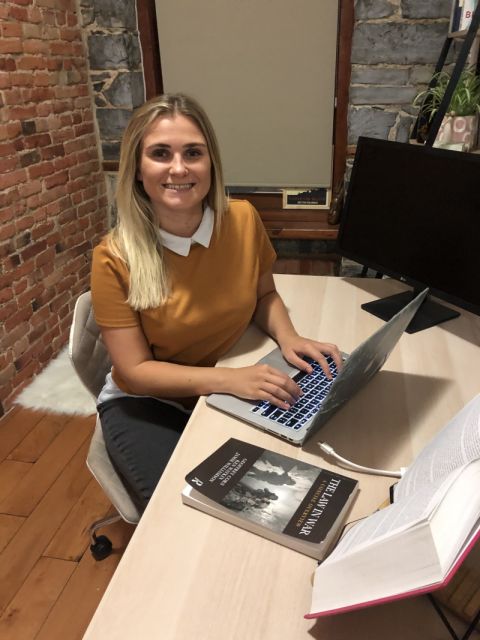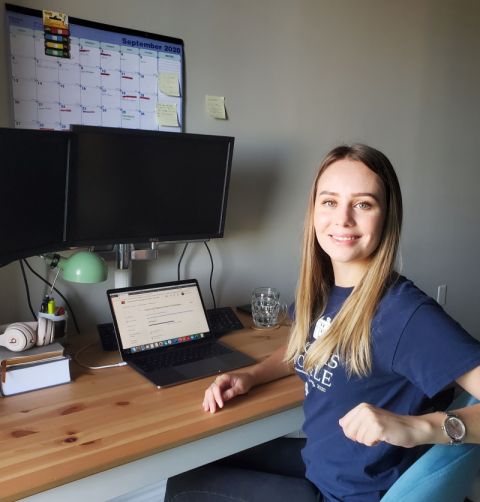

“From Meng Wanzhou’s extradition trial to the coronavirus pandemic, I am now better equipped to think critically about international relations issues and their actual legal implications.” Solenn Madevon, Law’22, says that’s just one key takeaway from this spring’s International Law Programs.
She, along with classmate Alexandra Nesterova and 61 other students, spent May and June at the e-Castle. Through this year’s online version of the programs that are normally held at the Bader International Study Centre in the U.K., they studied one of two exciting subject areas.
“The instructors were incredible,” says Nesterova, who completed the International Business Law Program. “They drew on and shared in class a variety of backgrounds and past experiences, ranging from working in journalism to working with government, international firms, and the World Trade Organization. That made learning fun and kept me engaged.”
Madevon had similar experiences with her instructors in the Public International Program. “I really enjoyed learning from leading practitioners in the field,” she says. “They were able to offer us unique insights into their profession and shared many candid stories about their careers.”
Those instructors included Norman Farrell, Law’86, and Katrina Gustafson, former prosecutors for the International Criminal Tribunal for the Former Yugoslavia, where they conducted numerous trials and appeals involving individuals charged with war crimes, crimes against humanity, and genocide.
“I had not realized the important role international law plays in Canadian jurisprudence, especially when it comes to Charter interpretation,” says Madevon. “Also, I discovered international law is often misunderstood by the media and politicians.”
For Nesterova, a highlight was discovering she had a strong interest in international arbitration and international trade law. “Queen’s faculty and alumni have connections with so many other incredible people out there with fascinating careers in international law,” she says. “That creates an infinite pool of resources that I have the opportunity to take advantage of as I pursue my career. I will now seek out every opportunity to learn more.”
While e-Castle students did not have the usual field trip experience of visiting international organizations in London and Europe, they still met key officials through online guest lectures and career panels. Guest lecturers included a former Executive Director of the International Monetary Fund, a Judge of the International Criminal Court, and Canada’s Ambassador and Permanent Representative to the Organization of American States. Twenty-four legal professionals, many of them alumni, participated in panels on a wide variety of international legal careers.
“International law is quite diverse and there are many available career paths, from working for the International Red Cross to being an international commercial arbitration lawyer,” says Madevon.
Nesterova agrees, adding, “I felt completely inspired by the guest lecturers’ and career panelists’ careers and life stories. I felt like I learned something interesting and valuable from each one of them.”
Both Madevon and Nesterova highly recommend the International Law Programs, in which students earn academic credit towards their JD degrees.
“Don’t underestimate the academic value of these programs,” Nesterova advises first-year students. “If you have any interest at all in international law, there is no better way to explore that interest while also getting ahead in school – and hopefully you’ll be able to travel Europe in 2021.”
“Whether its in person or online, I strongly encourage any 1L students to take the Castle program next summer,” adds Madevon. “It was a unique opportunity to gain a broad overview of international law, to meet other students with similar interests, and to network with Castle alumni.”
An online information session about the 2021 International Law Programs will be held in early October.